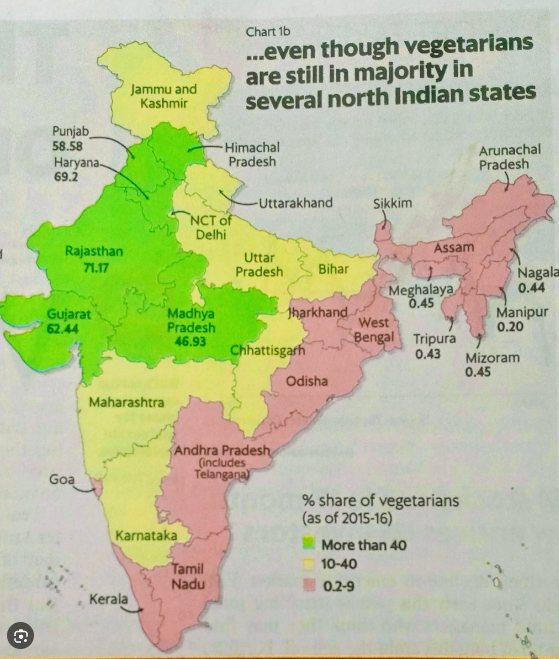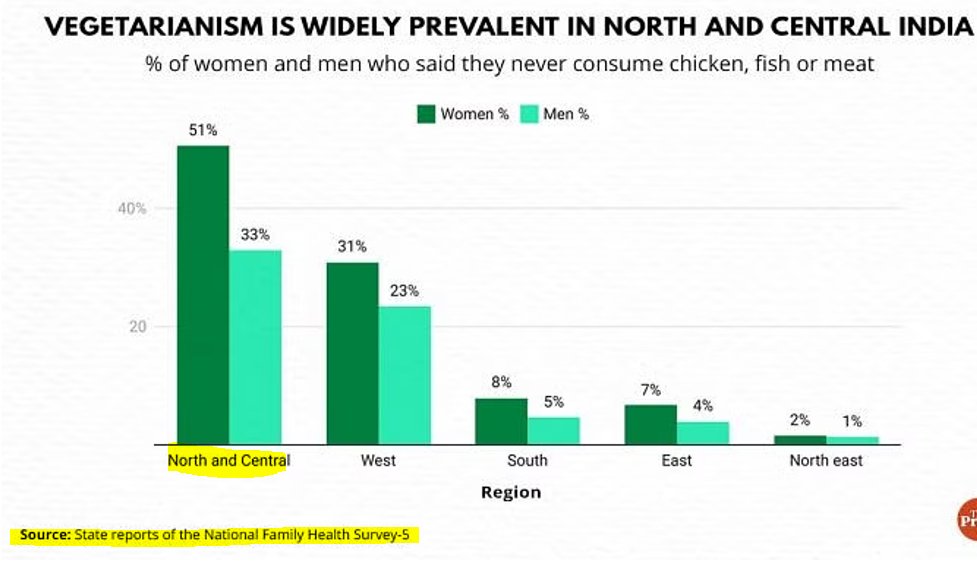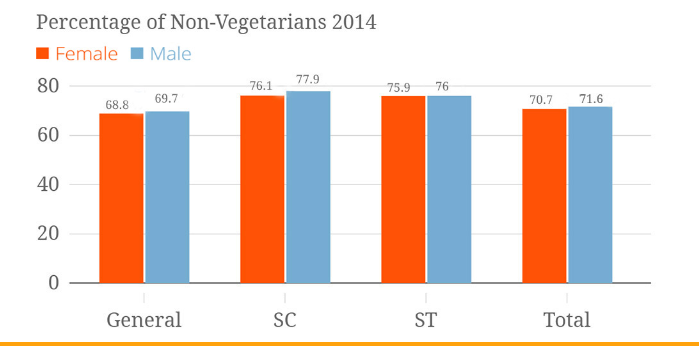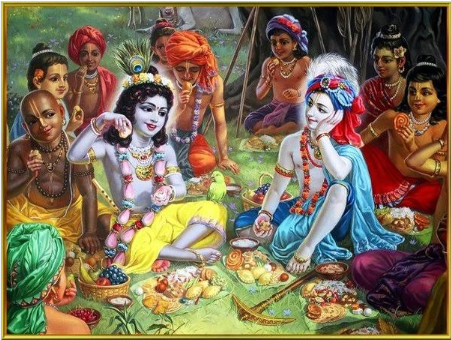In the wake of the recent #ZomatoPureVeg controversy, a section of the leftist ecosystem has attempted to equate vegetarianism with casteism. However, this notion is a gross misrepresentation of the truth. Vegetarianism in India finds its roots in religion and cultural practices, not in the caste system.
Vegetarianism Transcends Caste Boundaries
Contrary to the popular belief that vegetarianism is predominantly a Brahmanical practice, data from the National Family Health Survey (NFHS-5) reveals a different picture. According to the survey, approximately 25% of Indians, constituting 30% of the Hindu population, are vegetarians. Interestingly, Brahmins, often stereotyped as strict vegetarians, comprise only 5% of the overall population.
A Tapestry of Vegetarian Practices
The prevalence of vegetarianism varies across different regions of India, defying the notion of a caste-based pattern.
- North and Central India:
In the northern and central parts of the country, around 50% of Hindus follow a vegetarian diet.
- West Bengal:
Remarkably, while Brahmins in West Bengal are predominantly non-vegetarian, a significant number of Dalits strictly adhere to vegetarianism.
- Punjab:
Approximately 58% of the population in Punjab follows a vegetarian lifestyle.
- Rajasthan, Haryana, and Uttar Pradesh:
These states have a high percentage of vegetarians, with 70% in Rajasthan, 80% in Haryana, and 45% in Uttar Pradesh.
- Madhya Pradesh and Gujarat:
In Madhya Pradesh, 49% of the population is vegetarian, while in Gujarat, the figure stands at 45%.
Analysing the Demographic Composition
A closer look at the demographic composition of these states reveals a stark contrast to the assumption that vegetarianism is predominant among upper castes. In states like Punjab, Rajasthan, Haryana, Uttar Pradesh, Madhya Pradesh, and Gujarat, the percentage of the general caste (Hindu) population is not more than 20%, with Brahmins constituting less than 5%. This fact begs the question – from which caste do the large numbers of vegetarians in these states originate? The answer lies in the significant presence of vegetarians among the Scheduled Castes (SC) and Other Backward Classes (OBC) communities.
Historical and Cultural Roots: Jainism, Buddhism, and Vaishnavism
The origins of vegetarianism in India can be traced back to the influence of Jainism and Buddhism, which advocated non-violence and compassion towards all living beings. Subsequently, the Bhakti movement and the rise of Vaishnavism further popularised vegetarianism as a spiritual practice. Numerous saints and spiritual leaders, such as Chaitanya Dev, Shankar Dev, Anukul Thakur, Sant Gyaneshwar, Tukaram Maharaj, and the Lingayat community, embraced and propagated vegetarianism, transcending caste boundaries.
A Way of Life: Vegetarianism in Indian Culture
Vegetarianism in India is deeply ingrained in the Sanatana Dharma (eternal traditions) and cultural practices. Even non-vegetarians adhere to vegetarianism on certain days of the week and during rituals, following the principle of “Chhota Chut akdom chalta hai” (avoiding meat on auspicious occasions). This practice is observed across various communities, further reinforcing the notion that vegetarianism is a cultural phenomenon rather than a caste-based practice.
The notion of equating vegetarianism with casteism in India is a gross misrepresentation of reality. Vegetarianism in India is deeply rooted in religious and cultural practices that transcend caste boundaries.
In India, many people don’t eat meat not because of their caste, but because it’s part of their culture and spiritual beliefs. This tradition has been passed down through generations and is followed by millions of people from different backgrounds.








